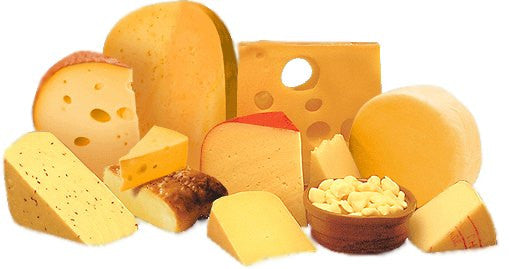In this article we will be discussing gout and cheese. We will look at whether the two go together, or if you should avoid cheese if you are prone to excess uric acid and gout flare ups.
Lowering Gout Risk with Dairy
So on the face of it you wouldn’t have thought that gout and cheese would go together well, this is often due to the historical concept of gout being an illness of over-indulgence and cheese being viewed as a treat for many people. However, the reverse might actually be true, with dairy products such as cheese, milks and yogurts being proven to actually help with gout and prevent flare ups. For many existing gout sufferers it is recommended to include the right type of dairy and cheese as part of your diet, as a way of combating gout and managing your condition. For those worried about flare ups, it can be a contributing dietary factor in reducing the potential risk of gout development.
The prevention of gout using dairy as part of your diet is down to a substance called orotic that can be found in milk. Orotic is known to help increase excretion of uric acid from the body, specifically the kidneys. The proteins casein and lactalnumin in milk are known to have a uricosuric effect, which protects against the development of gout. Uricosuric medication is used to combat gout, so to find this within milk and be able to have it as part of your diet is a much easier way to combat the joint pain. Uricosurics decrease plasma uric acid levels, dissolving crystals and prohibiting the formation of new uric acid crystals around the joints. If you are looking for added support alongside your diet a product such as Uriciplex is ideal as a safe, natural remedy that targets the root causes of gout with no side effects. You can use these together to decrease the chances of developing gout and managing the pain if you are already suffering from it.
The Right Type of Cheese and Dairy
Of course, not all cheeses and dairy are recommended. Some cheese and gout just don’t go together. The trick is to ensure you are eating the best quality, don’t buy and consume processed cheeses and any other dairy that is full of fat and sugars as these could potentially trigger a gout attack. Low-fat cheese and other types of low fat dairy, including milk, yoghurt and cream, can all be eaten when suffering from gout, and could actually help to decrease your uric acid levels, lowering the risk of gout in the process.
Low fat cheese is a really good food that can help as part of your diet when suffering with gout, or as a preventative measure, keeping things low fat, low-sugar and of the highest quality you can find and afford to have as part of your diet. Another important point as with all food and drinks when discussing gout is to always eat in moderation. Gluttony is a big factor in not only gout, but also other health problems if you are not eating a balanced, healthy diet.
Gout and Cheese – Yes Please
For many sufferers down the years, gout and cheese have been a companionship that works well. It has often been seen as a risk free protein and with the uricosuric effects of milk and those products created with milk, due to the orotic acid present in its makeup, you can eat cheese when suffering from gout, or are worried about the formation of uric acid crystals, and it won’t cause you harm. There is a word of warning however. There are certain types of cheese that will have an effect on your gout and possibly trigger it. Anecdotal evidence suggests that processed cheese, and those dairy products full of sugar and high in fat are more likely to trigger a gout attack. Our advice would be to only eat the best quality cheese you can afford and always eat in moderation as part of a healthy, balanced diet.





